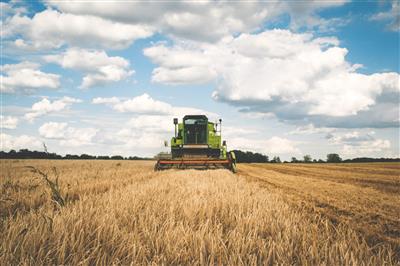By Joe Kristan
January 15, 2019
Disclaimer: This can get pretty confusing, for more information give Eide Bailly of Billings, MT a call at: 406-298-6100.
It seems fitting in this year of tax reform and change that sales made by a farmer to a cooperative during 2018 may be taxed differently depending on the tax year end of the cooperative. As a result, farmers will have to provide their tax preparers with information that hasn’t been needed before.
The Tax Cut and Jobs Act and the subsequent “grain glitch fix” ended the old Sec. 199 Domestic Production Activities Deduction (DPAD) for tax years beginning after 2017. The DPAD was replaced by the new Sec. 199A “Qualified Business Income” (QBI) deduction, with a special provision in the QBI rules that allows agricultural cooperatives to pass through a QBI deduction to patrons, much like the DPAD that they were allowed to pass through to patrons under the old law.
The new QBI rules are effective for tax years beginning after 2017. Since most farmers operate on a calendar year tax basis, the new QBI rules start for them on January 1, 2018. But, many cooperatives operate on a fiscal tax year, not a calendar tax year. That means payments made by a fiscal year cooperative during their fiscal tax year beginning in 2017 and ending in 2018 are covered by the old DPAD rules, not the new QBI rules. And, the grain glitch fix bill (HR 1625) says that while the DPAD is generally repealed for calendar year farmers after 2017, farmers can still claim the DPAD deduction received in 2018 from fiscal year cooperatives.
There is a catch: if the fiscal year cooperative passed DPAD out with its patronage dividends or per-unit retains during calendar 2018, the sales giving rise to those payments made during the cooperatives fiscal tax year ended in 2018 are ineligible for the new QBI deduction. Therefore, the farmer has to separate 2018 sales in computing 2018 taxes. Sales made before the end of the co-op fiscal year ending in 2018 do not qualify for the new Sec. 199A, but they do qualify for the old DPAD.
Example: A farmer sells grain in 2018 to a cooperative that operates on an August fiscal tax year. The farmer received a 1099-PATR reporting Sec. 199 DPAD from the cooperative for 2018. Sales by the farmer were made to the co-op on March 1 and October 1, 2018.
Because the March sale was made during the cooperatives fiscal year ending August 31, 2018, that sale goes into the computation of the DPAD passed out on the 1099-PATR for 2018 to the farmer. Therefore, that sale cannot be used in computing the farmer’s 2018 Sec. 199A QBI deduction. The October sale, however, is eligible for the farmer’s 2018 Sec 199A QBI deduction.
To get the tax reporting right, the farmer will need to provide the tax preparer with details of the timing of all 2018 sales to all cooperatives, so the preparer can compute any DPAD and the QBI deduction properly.
Fortunately, this may not be as onerous as it first seems since most cooperatives provide their members with an annual statement of sales. But, it will take more time and effort to get the information assembled correctly by farmers and tax preparers.
Summary: To properly compute farm taxable income for 2018, farmers need to provide the following to their tax return preparers:
- All 1099-PATRs issued to the farmer for 2018 by cooperatives.
- A copy of each written notice of DPAD allocation.
- Detail of the farmer’s activity (sales and patronage received) from the cooperative during calendar 2018. Farmers who don’t have this detail should request it from their co-ops.
For more information, contact Eide Bailly of Billings at 406-298-6100.


